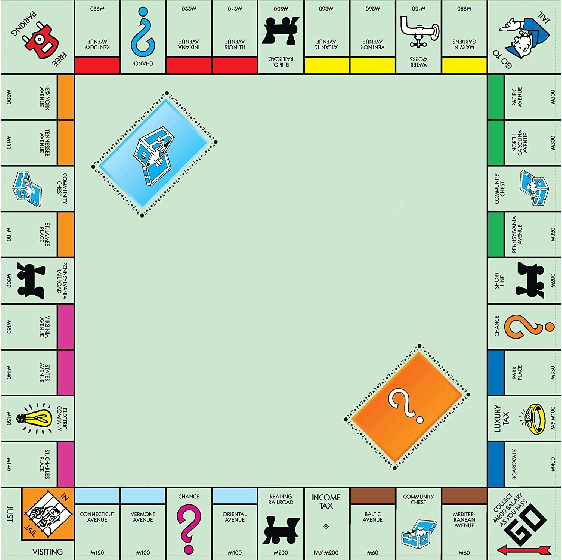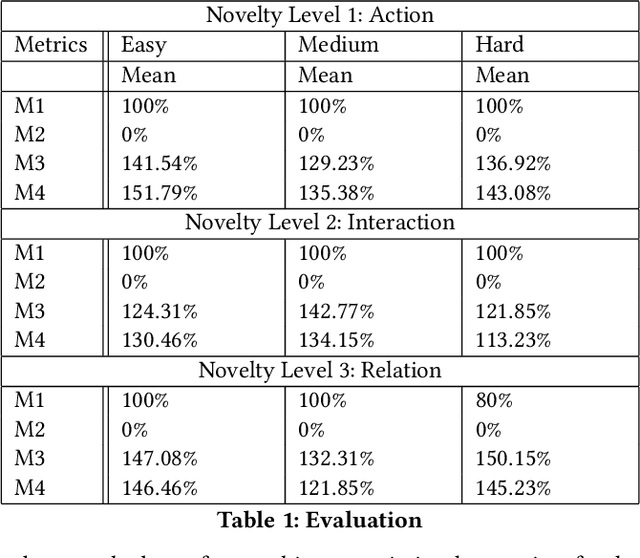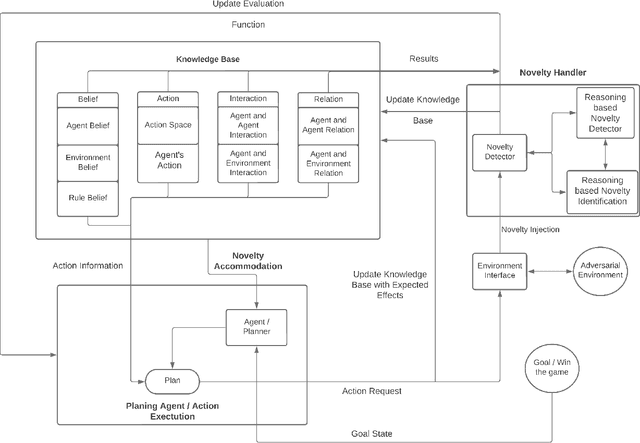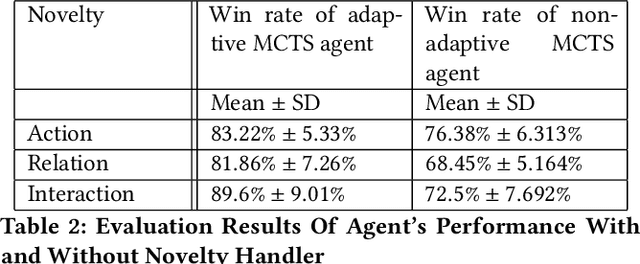Mayank Garg
Methods and Mechanisms for Interactive Novelty Handling in Adversarial Environments
Mar 06, 2023



Abstract:Learning to detect, characterize and accommodate novelties is a challenge that agents operating in open-world domains need to address to be able to guarantee satisfactory task performance. Certain novelties (e.g., changes in environment dynamics) can interfere with the performance or prevent agents from accomplishing task goals altogether. In this paper, we introduce general methods and architectural mechanisms for detecting and characterizing different types of novelties, and for building an appropriate adaptive model to accommodate them utilizing logical representations and reasoning methods. We demonstrate the effectiveness of the proposed methods in evaluations performed by a third party in the adversarial multi-agent board game Monopoly. The results show high novelty detection and accommodation rates across a variety of novelty types, including changes to the rules of the game, as well as changes to the agent's action capabilities.
 Add to Chrome
Add to Chrome Add to Firefox
Add to Firefox Add to Edge
Add to Edge